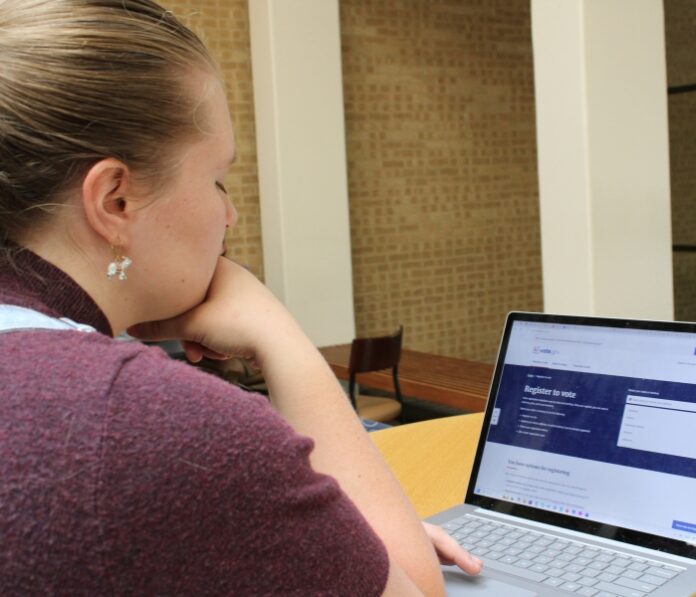
How to Prepare to Vote this November
It’s the season of campaign signs flooding lawns, bumper stickers covering cars and an influx of voter registration links popping up on social media. Americans have much to say regarding elections, but how clearly is their voice actually heard?
In recent elections, Americans have voted diligently. This was especially evidentin the 2020 election, when approximately 66% of the eligible population voted, marking the highest voting turnout in 120 years.
What characterizes our right to vote, and how has that right developed over time? One major development in voting rights came in 1920 with the addition of the 19th Amendment, giving women the right to vote.
In 1965, The Voting Rights Act was presented by President Lyndon Johnson, following the civil rights movement. This act reduced regulations on voter registration. Amidst the chaos of the Vietnam War, the establishment of the 26th Amendment reduced the voting age from 21 to 18.
Finally, the Motor Voter laws of 1993 made voting more accessible by requiring states to offer mail-in registration. The history of voting in America has been long and arduous, ultimately leading to a greater emphasis on the people’s right to vote.
However, does this right to vote, which many have fought tirelessly for, even make a difference in the grand scheme of things? UD’s own politics professor, Dr. Matthew Berry, said on the topic, “Voting is a terrible way to ‘be heard’ or ‘make your mark,’ because, statistically speaking, an individual vote is meaningless—red state, blue state, it doesn’t really matter. However, while my individual vote doesn’t matter, how everybody together thinks about voting does matter. In other words, if we all treat it like a joke, we’re going to get a joke candidate in office.”
He emphasized that voters must be informed about politics, not for selfish gain, but rather to consider what is best for the country as a whole in each election. Thus, one should not brush off the right to vote merely because they do not think it will alter the outcome. Rather, individuals, acting as a part of the larger whole, should vote to set the tone for the country.
Voting is a much less daunting process than many believe. You can register online, by mail or in person at your local election office at least 30 days before an election. If you are a Texas resident, you can register by mail by going to votetexas.gov, selecting ‘register to vote’ and clicking ‘SOS Online Voter Registration Application.’ Then, simply fill out the application, print it, sign it and mail it in to your county voter registrar’s office.
If you are from out of state, you can request an absentee ballot through your home state’s government website. Once you receive the ballot from your state, fill it out and send it back by your state’s deadline. If you wish to vote in person, the deadline to register for the upcoming general election is Oct. 7.
With this information, you can find out which method of voting applies to you, follow the directions above and, voila! You will be prepared to vote this November!